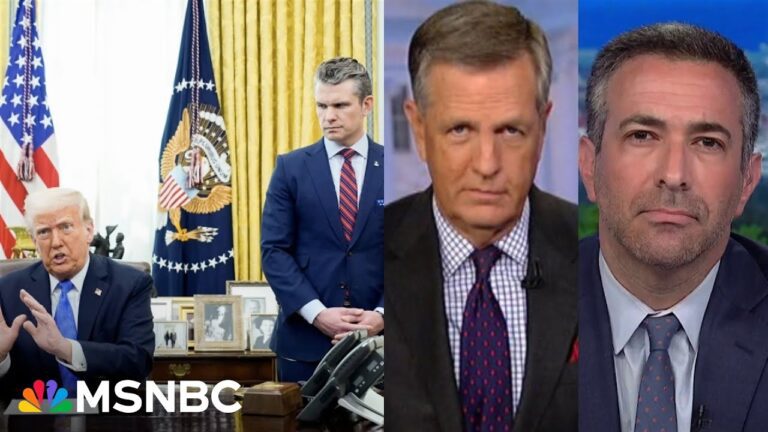Video at the bottom!
The chaotic atmosphere in the Pentagon escalated as the Defense Secretary confronted reporters about their coverage of military actions aimed at containing Iran. He alleged that journalists were rooting against the success of President Trump’s initiatives, invoking a confrontational rhetoric reminiscent of past administrations. The Secretary’s claims have sparked significant debate, especially given the credibility and expertise of the reporters involved, many of whom possess extensive backgrounds in military and intelligence reporting.
As discussions about the effectiveness of recent strikes on Iranian nuclear facilities unfolded, initial leaks from the Trump administration suggested the operations may not have achieved the level of obliteration that the President touted. Contrary to Trump’s claims of complete destruction, intelligence assessments indicated only partial damage, thereby fueling tension both within the administration and in the media landscape.
Experts have weighed in on the implications of the military actions, with some viewing them as a tactical success in the broader battle against Iran’s nuclear ambitions. However, concerns linger over the government’s approach to handling press scrutiny, particularly as the Pentagon sought to control the narrative surrounding intelligence assessments and military outcomes. This clash exemplifies a deeper issue in the politicization of intelligence and the fundamental role of the press in a democratic society.
The exchange culminated in a public dispute at Fox News, where one anchor defended a colleague who faced the Secretary’s ire, emphasizing the reporter’s professionalism and commitment to unbiased reporting. This incident underscored the importance of accountability in foreign policy discourse and raised alarms about the dangers of press intimidation, an issue that transcends party lines and remains critical to maintaining an informed public.


